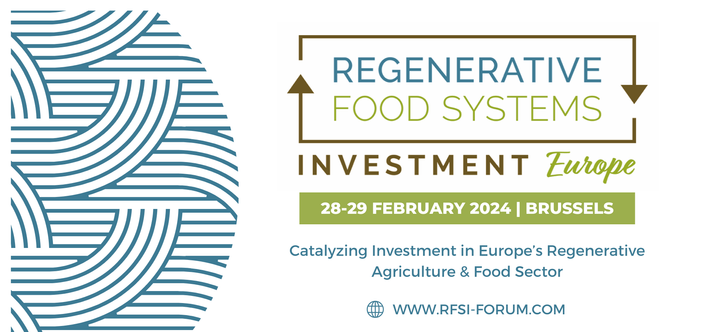5 Key Takeaways from our SFDR Webinar: Complying with regulations in 2023

ICYMI - Proof & Pitchbook & partnered together to examine how the SFDR aims to increase market transparency and promote more sustainable investing. [Missed the event? You can watch the webinar recording here.]
Moderated by PitchBook analyst Anikka Sophia Villegas, Fleur Heyns of Proof, Dr. Pascal Stock of DFine, Dr. Marc Moser of Lightrock, and Anne Schoemaker of Sustainalytics discussed the practicalities of the Sustainable Finance Disclosure Regulation (SFDR), key insights into why SFDR is so important, and how they can add value to your firm.
The panel started off with a powerful metaphor from Proof CEO Fleur Heyns contextualizing the importance of sustainability disclosures.
“If you are going to brand a cereal box, you need to have the nutrition label to back it up. It’s common sense. In the same way, if you’re going to market with a financial product branded as sustainable, you need to have the data to back it up. We can’t have sustainable green funds that aren’t making an effort to disclose their performance."
The SFDR regulation is providing the blueprint for the sustainability “nutrition label” for private market investors. Here are our 5 key takeaways on how SFDR is changing the game for sustainability reporting and how your organization can prepare:
❶ SFDR is coming fast…
...and guidance is evolving changing rapidly. Many elements and requirements for SFDR leave room for interpretation (e.g., what meets “best effort” requirements). To confidently comply, it is essential that firms educate themselves on what this means for their team and portfolio. Proof has compiled a simple workback plan to make it easy to keep track of the key dates and deliverables.
❷ The biggest obstacle for firms is data availability and quality.
Without sophisticated data collection processes in place and a team of ESG experts to oversee and update operations as regulation evolves, private market investors are struggling to meet compliance requirements. To save critical team time and streamline manual data collection processes, firms are increasingly partnering with data platforms to streamline the process for portfolio companies to provide PAI (Principle Adverse Impacts) data. In doing so, firms are outsourcing the most resource-intensive components of SFDR compliance, while also significantly reducing their portfolio companies’ burden to interpret complex definitions and report datasets to multiple investors.
❸ Begin to discuss the regulation with portfolio companies as early as possible.
Reliable data reporting is reliant on portfolio company buy-in. To make the process meaningful for portfolio companies (rather than a check-the-box exercise), lead with the value that sustainability disclosure can bring for companies to baseline and track their ESG performance. Portfolio companies can benefit by streamlining their fundraising processes, accessing new pools of sustainable capital, understanding their current social and environmental footprint and opportunities for improvement, and centralizing their ESG reporting for all investors in one system. It’s important to keep communications with portfolio companies simple and focused on value. We’ve developed a simple checklist summarizing what will be required and when - to streamline communications with portfolio companies regarding deadlines and deliverables.
❹ There is a huge business opportunity for firms that achieve Article 8 or 9 compliance, compared to Article 6.
Article 8 and 9 funds position themselves as industry leaders in responsible investing and can unlock additional pools of capital providers. By getting ahead of the regulation, firms can avoid scrambling to comply later on, or missing out on funding opportunities after the June 30 deadline passes.
❺ Firms that do not comply in 2023 will face challenges in subsequent years.
Firms that do not meet basic compliance requirements now risk falling further behind as regulations intensify in the coming years. In 2023, firms are expected to show improvement in data quality and overall portfolio performance. In future years, investors will increasingly make investment decisions based on both a fund’s SFDR status AND a fund’s ability to make material performance improvements over time. Without 2023 data readily available, firms will face an uphill battle in achieving compliance in 2024.
In the same way that consumers review a cereal box’s nutrition label and ingredients list, consumers are increasingly making purchase decisions based on a product’s sustainability performance. Sales of more sustainable products grew 8 percentage points quicker between 2017 and 2022 than products with no sustainability focus. In 2023 and beyond, investors will require access to business sustainability performance to make an informed investment decision. While the European Union is the first mover on requiring sustainability disclosures, our speakers noted that they see a near future where minimum viable ESG requirements will be enforced by all regulatory bodies. Even for investors and funds that are not subject to regulations, SFDR metrics are quickly being viewed as the common standard for ESG disclosure.
What is now seen as a disruptive legislation will soon become common practice - as commonplace a nutrition label on a cereal box - to avoid greenwashing and promote the movement of capital to more sustainable companies. The new EU regulation is creating a snowball effect and other countries and regions will soon release their own private market disclosures. The UK is adopting similar principles with SDR, and the US will soon follow suit with the new SEC and TCFD regulations. In a few years, it is nearly certain that any private market investor will need to comply with sustainability regulation. Our speakers recommend getting ahead of the curve and preparing for the imminent future of private market sustainability disclosures, instead of awaiting the consequences of not complying.
Not sure if you need to be compliant? Use this quick, interactive assessment to identify if your organization needs to report on ESG data under the EU Sustainable Finance Disclosure Regulation (SFDR).
Ready to begin collecting data from your portfolio? Reach out to the Proof team here.

